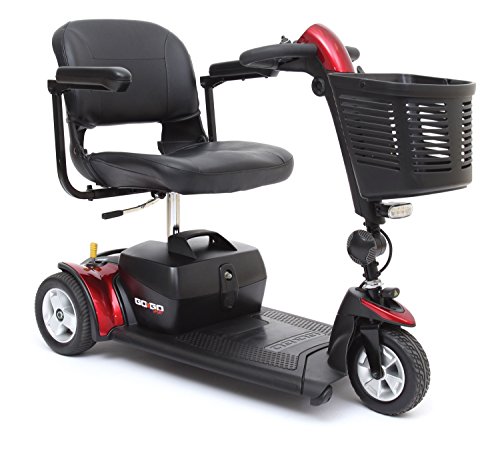The Ultimate Glossary Of Terms For Personal Transportation
What Is Personal Transportation?
Private transportation refers to the use or private transportation vehicles. This includes cars, bikes, scooters unicycles, and other micromobility devices. It can also be referring to the use of public transportation systems.
Private transport is a great option to reduce time and get to where you want to get to. Additionally, it's more comfortable and provides an element of privacy that's not available in public transportation.
Cost
Many families discover that the cost of personal transportation is a major expense. This can make it hard for them to invest or save money in other areas. Fuel can be an expensive expense. There are ways to reduce your transportation costs.
Despite all these advantages, many people still prefer private transport to commute. They consider it to be the most convenient and comfortable method of moving around. Some prefer to travel with their chauffeur. The cost of this type of transport is typically higher than public transportation, but it can bring more peace of mind and comfort.
As EVs benefit from advancements in battery technology, charging infrastructure, and other areas the future of personal transportation is likely to be electric. EVs are also more accessible and will emit less carbon dioxide than traditional vehicles. This will make it easier for many people to make the switch from gasoline cars to electric vehicles, which will help reduce GHG emissions as well as traffic congestion.
Public transportation has numerous advantages and can be an excellent alternative to private transportation. Mass transit is cheaper and eco-friendly than private vehicles. It is also convenient and equipped with cameras that ensure passengers safety. It can also help users avoid parking fees and maintenance. The biggest drawback of public transport is that it is sometimes slow and infrequent. It can also be challenging to travel with children or elderly people. This can result in delays and missed medical appointments.
Time
The time it takes to complete a personal transport task can affect people's lives. People who have a busy schedule often discover that commuting is too long. It is possible to cut down on the amount of time they have to travel by using carpools or working from home, or living near their work. It is also possible to save time if you walk or ride bikes instead of driving.
The development of new technology can potentially revolutionise personal transportation. This includes electric vehicles equipped with solid-state batteries, which provide longer ranges and faster charging times. These technologies can also increase safety and lower traffic congestion through optimized traffic management. Another important advancement is autonomous vehicles that can offer more convenient and enjoyable journey. They can aid people in staying fit by keeping moving.
You can also find more about Privacy.
Privacy is an essential aspect of personal travel.
electric mobility scooter portable who are concerned about privacy prefer to travel in their own vehicles, instead of using public transportation where they share space with strangers. Moreover public transportation is frequently thought to be less safe than private transportation which could affect people's personal safety. This is particularly relevant for people who are elderly, who are more prone to concerns about safety.
The lack of privacy is an issue for those who travel with their children. Children may be stressed due to having to share space with other passengers. This can lead to behavioral issues such as aggression and hyperactivity. This is why parents are increasingly choosing to use private transport to ensure their children's safety. This can reduce the stress associated with transporting children and the amount of time spent on commuting. This can save you money on childcare.
Convenience
Personal transportation is an integral part of daily life. However, the choice you make could have a significant impact on your health and well-being. Before deciding on the most appropriate mode of transportation for your needs, it is important to weigh up the advantages and disadvantages.
Some people prefer public transit which is generally less expensive than private transportation and requires less maintenance. Furthermore, it has a lower environmental impact, as it doesn't release more carbon dioxide per passenger. It also reduces the expense of fuel and parking, as well as allowing you greater convenience and flexibility in your daily commute.
Public transport is not always reliable and can pose some dangers. You could be at risk of being a victim of crime or not be able to reach your destination in time due to weather or mechanical problems. A lot of train and bus routes are crowded and make it difficult to move around.
On the other side, private transportation is a great way to travel around in peace and comfort. It's generally faster than public transportation, and you'll be able to avoid crowds when you travel in a private car. It is also more convenient to use a private vehicle than an automobile because you are able to select your preferred route.
Despite these advantages, most people still opt to use their car as their primary means of transportation. It could be because they're more comfortable or have a greater value. In the near future we can anticipate an enormous shift in personal transportation as electric vehicles (EVs) become more affordable and easier to charge.

Researchers at MIT conducted an investigation to discover what factors influence peoples' choice of modal options. The researchers found that safety is an important factor, but it's not the most significant part in determining the modal choice. In reality the most important factors are speed, availability, and cost. This is in line with previous studies on the modal choices and is likely to persist for a long time. Similarly, a new battery technology that utilizes solid state batteries could further improve the efficiency of EVs and allow them to travel longer distances with the same amount of power.
